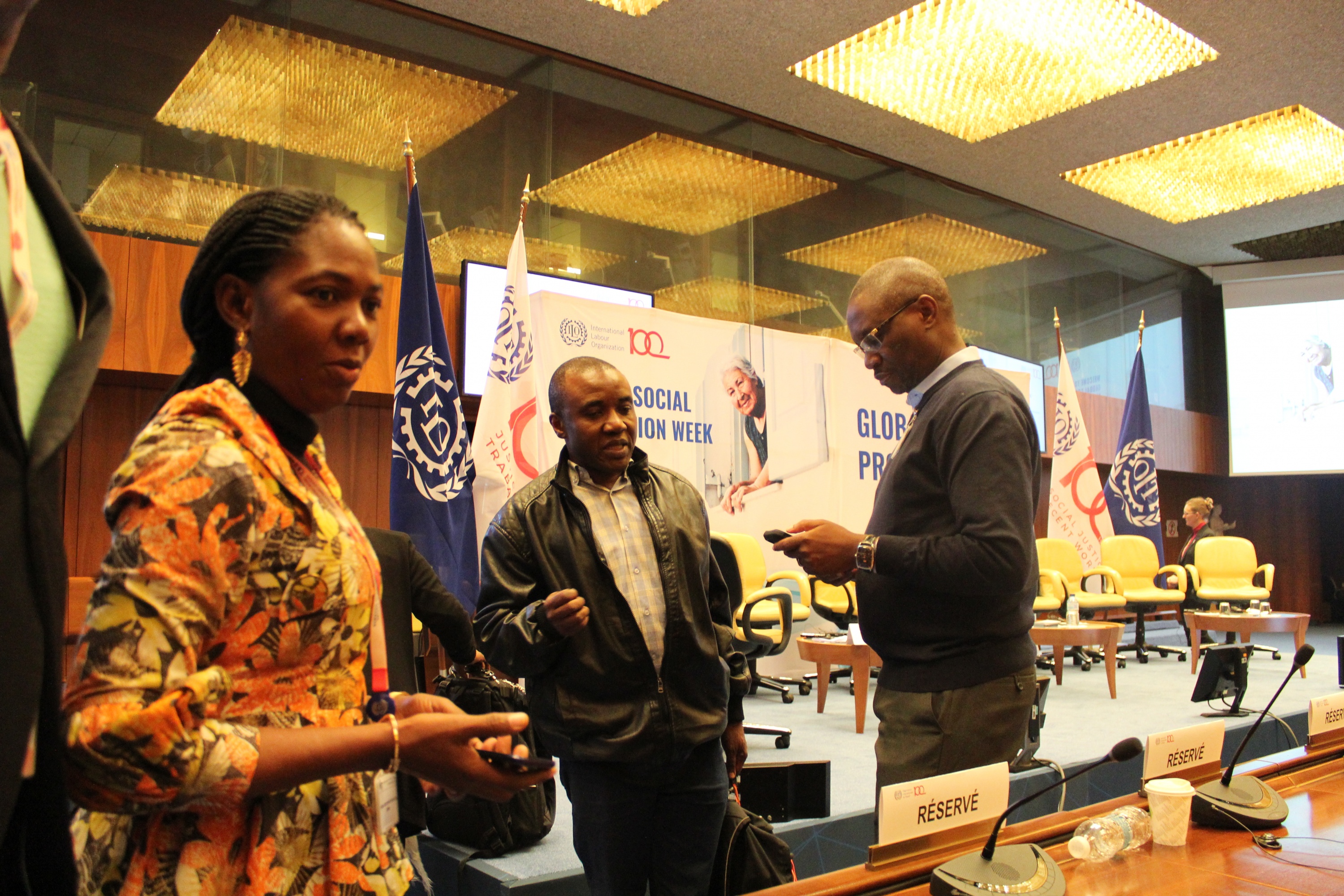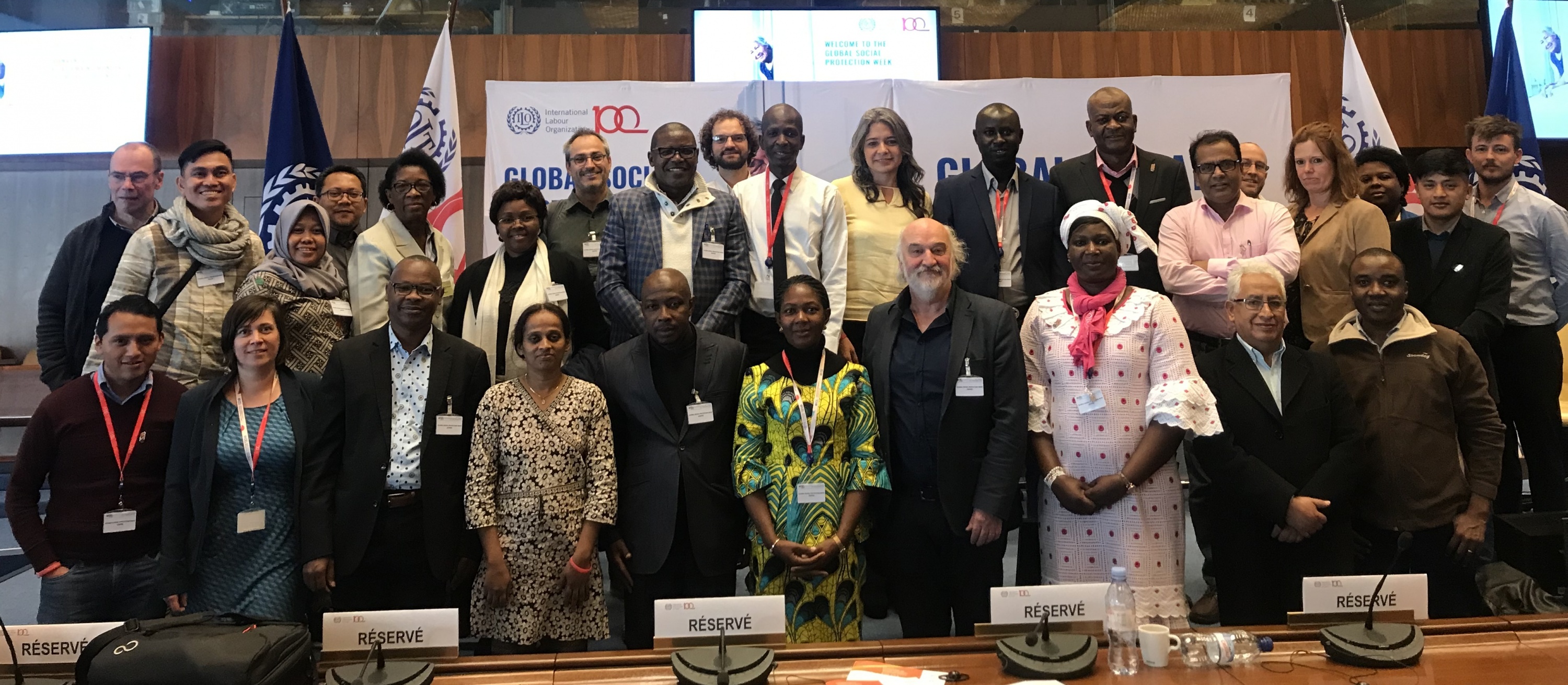 The next generation needs to ensure trade unions leadership, therefore General Federation of Nepalese Trade Unions (GEFONT) chose to invest in the organizing of workers below 35, since they are the future. “I’m Geeta (34) and I have two children. I have been working in an aluminium industry since the past 14 years. I started working at the age of 20. At that time, I had no idea about trade union rights, workers’ rights or women rights. In 2004 I got the opportunity to participate in a programme organized by GEFONT. I really got inspired and started raising awareness among my co-workers. In 2006, I became the GEFONT representative for my enterprise and in 2010 I became the Whole Industry Trade Union Nepal (WHIN) district committee member (blue collar workers) and secretary.”
The next generation needs to ensure trade unions leadership, therefore General Federation of Nepalese Trade Unions (GEFONT) chose to invest in the organizing of workers below 35, since they are the future. “I’m Geeta (34) and I have two children. I have been working in an aluminium industry since the past 14 years. I started working at the age of 20. At that time, I had no idea about trade union rights, workers’ rights or women rights. In 2004 I got the opportunity to participate in a programme organized by GEFONT. I really got inspired and started raising awareness among my co-workers. In 2006, I became the GEFONT representative for my enterprise and in 2010 I became the Whole Industry Trade Union Nepal (WHIN) district committee member (blue collar workers) and secretary.”Dilli, 38 years old, is fighting, together with Nepal Trade Union Congress (NTUC), for better wages and better working conditions. “I have a very poor family background: I have 4 children, a disabled father and a mother with a chronic disease. I’ve been working in an Ilam Dairy Product Cooperative since 2004, with a total salary of 2.000 NPR (15 EUR). I used to work 12 hours a day, without any leave or other welfare support. My salary was way too low to fulfil the basic needs of my family, as well as to pay medicines for my parents. I asked my management several times for an increase, but it was denied over and over again”.
 That’s why he consulted WSM partner, local trade union, NTUC. An NTUC district committee carefully listened to his grievances and they involved him in different programs and activities of the Union. Finally, in 2017, with the initiation of NTUC, his salary was increased to the level of the minimum wage of 9.700 NPR (73,50 EUR). For long, the minimum wages fell far below the amount needed to satisfy the family subsistence. In 2018 the legal minimum wage was revised and increased to 13.450 NPR (101,90 EUR). However, regular monitoring of the implementation of the wages is very important. In case of Nepal, this aspect is fully absent. Workers in enterprises or sectors where union is absent or weak are still compelled to work for a wage that is insufficient to earn a living. Dili for example did again not receive the increased minimum wage. That’s why NTUC made a second request to revise his wage in the beginning of 2019. Thanks to their support, he is now receiving it.
That’s why he consulted WSM partner, local trade union, NTUC. An NTUC district committee carefully listened to his grievances and they involved him in different programs and activities of the Union. Finally, in 2017, with the initiation of NTUC, his salary was increased to the level of the minimum wage of 9.700 NPR (73,50 EUR). For long, the minimum wages fell far below the amount needed to satisfy the family subsistence. In 2018 the legal minimum wage was revised and increased to 13.450 NPR (101,90 EUR). However, regular monitoring of the implementation of the wages is very important. In case of Nepal, this aspect is fully absent. Workers in enterprises or sectors where union is absent or weak are still compelled to work for a wage that is insufficient to earn a living. Dili for example did again not receive the increased minimum wage. That’s why NTUC made a second request to revise his wage in the beginning of 2019. Thanks to their support, he is now receiving it.As became clear in the above example, NTUC has been organizing various policy dialogues and policy level intervention activities. They organized their workers through its regular activities, such as May Day, International Women Day, the International Occupational Health and Safety Day, Decent Work Day, Youth Day, etc. They focused on organizing and campaigning. Because of these and other efforts, NTUC and GEFONT have managed a very respectable increase of membership of 100.000 members in the past three years, of which the overwhelming majority are women and under 35 years old!














